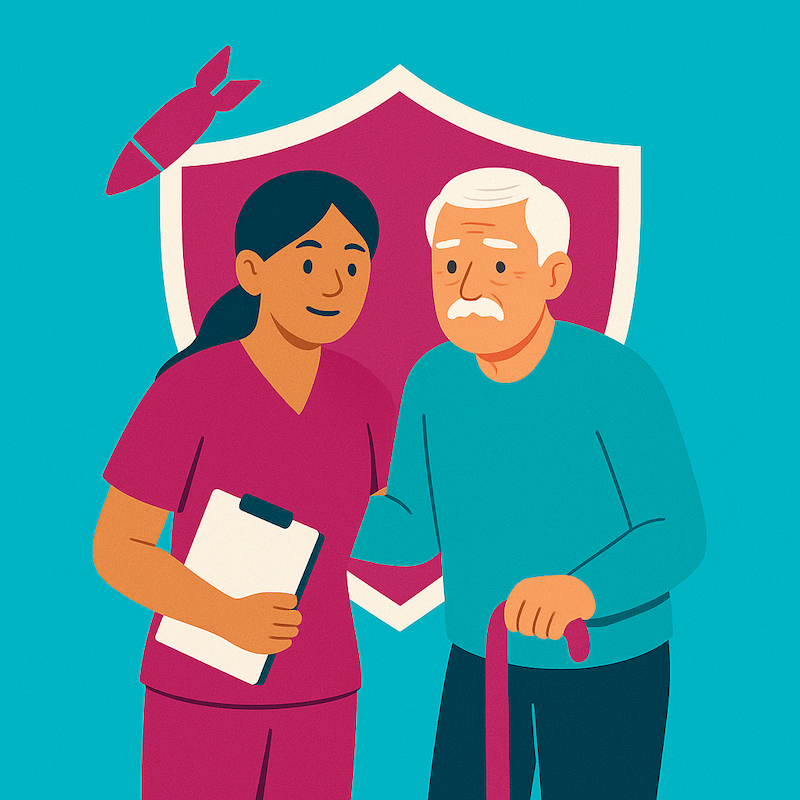Tips for Caregivers to Help Elderly Patients Achieve Restful Sleep
iSavta | 14.05.2023

Elderly patients often experience difficulty falling asleep and waking up after only a few hours of shallow sleep, leaving them drained of energy and overwhelmed. In such cases, seeking help from a doctor who will prescribe medication to aid sleep is often the only solution.
As a caregiver, there are several ways to assist an elderly patient in achieving a restful night's sleep. Some tips to consider include:
- Identifying the underlying problem: It's essential to determine the cause of your patient's sleepless nights, whether it be physical, mental, or emotional factors, to find effective solutions.
- Ensuring a quiet, cool, and dark bedroom: As we age, our sensitivity to noise and changes in body temperature increases. Ensure that the bedroom is quiet, cool, and dark to promote a restful sleep.
- Providing a comfortable bed and bedding: Uncomfortable beds can cause back pain, making it difficult for elderly patients to find a comfortable sleeping position. Ensure the bed is comfortable, and the sheets and pillows are clean and cozy.
- Limiting caffeine and liquid intake before bedtime: Caffeine can affect sleep quality, and drinking liquids before bedtime may result in waking up involuntarily to urinate.
- Encouraging exercise: Physical activity can burn excessive energy, making it easier to fall asleep. Walking, swimming, or participating in aerobics for the elderly are excellent choices if the patient is able.
- Reducing mental stress: Calming activities such as listening to music, journaling, or developing a hobby can help reduce mental stress. Giving a gentle massage before bedtime can also promote relaxation.
- Ensuring medication compliance: If a doctor prescribes medication to aid sleep, it's essential to remind the patient to take it before bedtime.
In summary, as a caregiver, understanding the underlying factors that cause sleepless nights for elderly patients and implementing strategies to promote a restful sleep can significantly improve their overall well-being.











